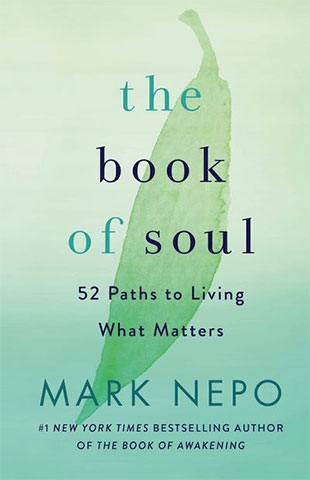"There's a paradox about practice we must enter if we're to do more than chase our own tail. To start with, practice is necessary as a way to bring ourselves alive through the particulars of anything we want to learn. As the Tibetan Buddhist Jennifer Fox says:
" 'Understanding emerges and evolves through practice . . . [by] maintaining a ground in yourself that the teachings can soak into, which would remain abstract if there was no practice.'
"And yet, as the American spiritual teacher Adyashanti says:
" 'The role of spiritual practice is basically to exhaust the seeker. If the practice does what it's supposed to do, it exhausts our energy for seeking, and then reality has a chance to present itself.'
"So we're challenged to always practice the particular acts of living, knowing all the while that such immersion will only open us to the end of all practice, where unrehearsed living is its own reward.
"In daily terms, we practice to apply what we learn in the future, the way a jazz pianist will rigorously learn scales and chords in order to someday improvise. In time, the ultimate reward for practice is that it delivers us more deeply into the river of the present. In this way, anything is worthy of our immersion, which in time will allow our practice to dissolve into the moment we're about to live. . . .
"I'm reminded of the story of a man walking along the ocean. He sees two fish in the surf and wades out to meet them. He leans over and asks, 'What's it like to live in the ocean?' Neither fish answers and the man moves on. Once out of view, one fish turns to the other to ask, 'What's an ocean?' The closer we are to the heart of living, the harder it is to name what we're a part of, because we are in it. This inability to name what we're experiencing is a sign that we're fully immersed.
"Once immersed in life, it's harder to hold on to things, because that's the nature of the deep. The further we go, the more we're asked to trust our knowing over our knowledge. At best, the mind is a net that, no matter how finely woven, will always have holes. But we don't have to worry, for the heart is a sponge, waiting below the mind to absorb whatever the mind can't grasp. . . .
"In actuality, where practice and immersion meet is a form of prayer. So when feeling lost, pick up something broken and try to fix it, or listen to something natural and try to understand how it works, or just open your hands and welcome whatever lands near your heart. . . .
"Yet how do we begin a practice of immersion? By giving our attention completely to any one particular aspect of life, no matter what it is, and giving ourselves to it thoroughly. For through a love of details, the Whole of Life appears. . . .
"Like a sponge that assumes its full shape once dipped in water, practice and the immersion it evokes let us expand and become our full potential. Like a blacksmith who dips his face in a lake after hours of forging tools, we know God the moment we enter the lake of life and break our image with a kiss.
"Questions to Walk With
"In your journal, describe one thing you're practicing in your life. How is this practice making you more skillful? How is your immersion of effort making you more yourself?"
